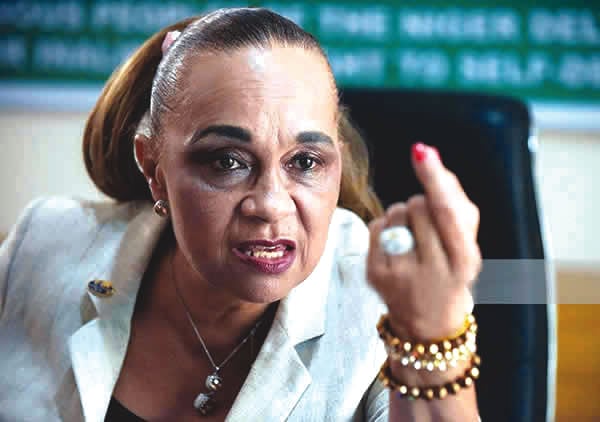The political landscape of Rivers State, Nigeria, has been a tumultuous one, marked by internal power struggles, accusations of betrayal, and a controversial state of emergency. At the heart of this turmoil is the Peoples Democratic Party (PDP), a party that has enjoyed unwavering support from the Rivers people since 1999. However, according to Ann-Kio Briggs, a prominent Niger Delta rights activist and member of the Rivers Elders Forum, the PDP has failed its loyal constituents, allowing internal divisions to fester and leaving the people of Rivers State to bear the brunt of the resulting political instability. Briggs contends that the party’s inaction and inability to effectively manage the crisis is a profound betrayal of the trust placed in them by the electorate. This sentiment of betrayal underscores a deeper issue of political accountability and the responsibility of political parties to prioritize the well-being of their constituents over internal power plays.
The recent political crisis, which began after Governor Siminalayi Fubara assumed office in May 2023, stemmed from a power struggle with his predecessor, Nyesom Wike, the current Minister of the Federal Capital Territory. The rift between Fubara and Wike escalated, permeating the state House of Assembly and creating deep divisions among lawmakers. This internal conflict destabilized the state, culminating in President Bola Tinubu’s declaration of a six-month state of emergency in March 2025. This drastic measure saw the suspension of Governor Fubara, his deputy, Ngozi Odu, and the members of the House of Assembly. Retired Admiral Ibok-Ete Ibas was appointed as sole administrator to manage the state’s affairs during this period. The imposition of emergency rule, while intended to quell the political unrest, further complicated the situation and raised concerns about the balance of power between the federal government and the states.
While Governor Fubara has publicly expressed gratitude to President Tinubu for brokering peace and facilitating his reinstatement, Briggs remains skeptical. She argues that not all residents of Rivers State share the governor’s sentiment of gratitude, emphasizing that the people have paid the highest price throughout this political drama. Briggs also criticizes the lack of transparency surrounding the peace agreement brokered between Fubara, Tinubu, and Wike. She asserts that decisions affecting the people of Rivers State should not be made behind closed doors. This demand for transparency highlights the importance of public engagement in political processes and the right of citizens to be informed about decisions that directly impact their lives. The secrecy surrounding the agreement, she argues, undermines the governor’s credibility and fuels distrust among the populace.
Adding another layer of complexity to the situation is the involvement of both the All Progressives Congress (APC) and the PDP in the crisis. Briggs points fingers at both parties, accusing them of exacerbating the situation rather than working towards a resolution. This accusation underscores the broader issue of political maneuvering and the potential for political parties to prioritize their own interests over the well-being of the people they are supposed to represent. The political crisis in Rivers State, therefore, becomes a microcosm of the larger challenges facing Nigerian democracy, where political rivalries often overshadow the needs of the citizenry.
Briggs’ call for accountability extends to Ibok-Ete Ibas, the sole administrator appointed during the state of emergency. She insists that Ibas must account for the funds expended during his tenure, emphasizing that these resources belong to the people of Rivers State. This demand for financial transparency reflects a growing concern about the management of public funds and the need for greater accountability from those entrusted with public office.
The political crisis in Rivers State serves as a stark reminder of the fragility of democratic institutions and the importance of upholding the principles of transparency, accountability, and public participation. The people of Rivers State, having endured the consequences of political infighting and instability, are demanding greater transparency and a more inclusive approach to governance. They are demanding that their voices be heard and that their elected officials prioritize their well-being over political maneuvering. This demand for change reflects a growing awareness of the power of the electorate and the importance of holding elected officials accountable for their actions. The future of Rivers State, therefore, hinges on the ability of its political leaders to learn from the mistakes of the past and to prioritize the needs of the people they serve. The demand for accountability, transparency, and meaningful public participation will continue to shape the political landscape of the state and determine the future of its democracy.


